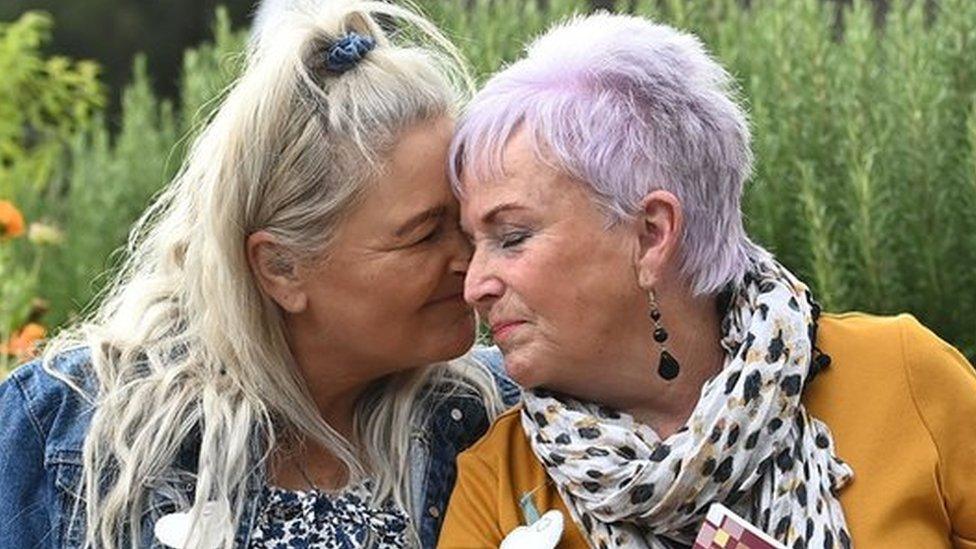Private nursing homes 'used to secretly house women and babies'
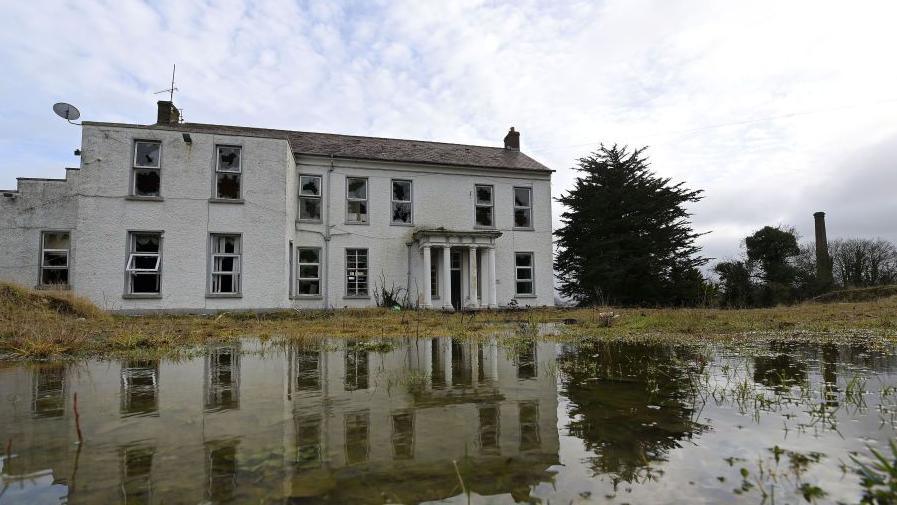
The former Marianvale Mother and Baby home in Newry
- Published
The investigation into institutions for unmarried mothers in Northern Ireland has found some evidence that pregnant women and babies may have spent time in private nursing homes as a “measure of secrecy”.
An investigatory body, the Truth Recovery Independent Panel, external, is gathering evidence about mother-and-baby homes, Magdalene Laundries and workhouses.
Panel co-chair Professor Leanne McCormick has said there is evidence of private nursing homes being used to house pregnant mothers, whose babies were then adopted.
It is thought at least 10,500 women were sent to the institutions, commonly known as mother-and-baby homes, in Northern Ireland but incomplete records mean the figure may be higher.
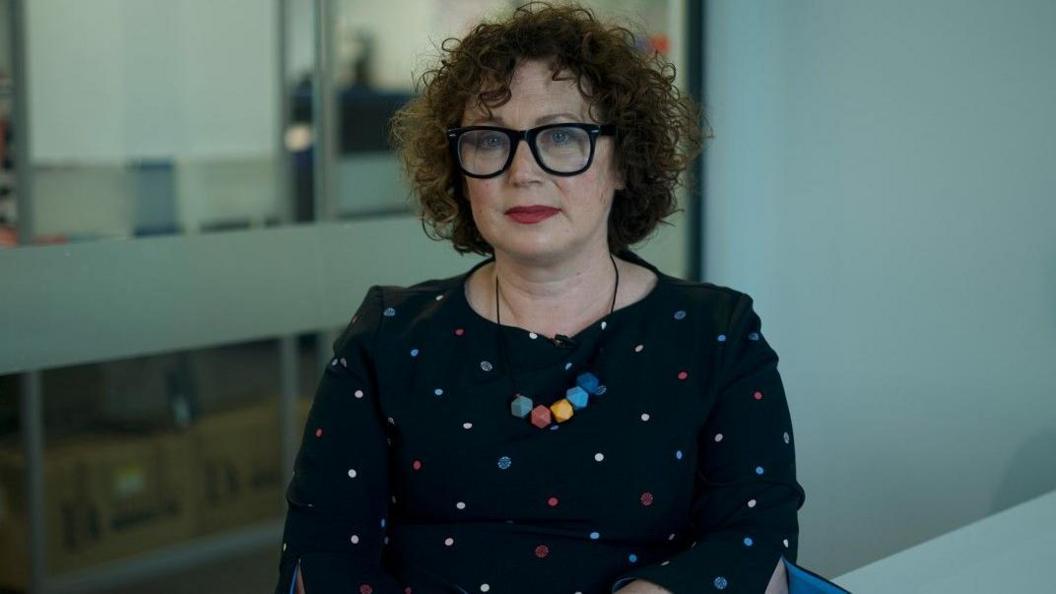
Professor Leanne McCormick from the Truth Recovery Independent Panel
More than 100 people have, so far, come forward to the panel, which is gathering information confidentially in a non-confrontational setting.
The panel is in the first stage of the investigation set up by the devolved government.
The work will feed into a public inquiry – which will examine alleged abuses including forced adoptions.
Prof McCormick said: “We have become increasingly aware of pregnant mothers spending time in private nursing homes, and babies being adopted from those.
“It means the authorities may not be aware of the situations in the same way as they would have been if they were in local hospitals.
“Often we have seen that women and babies may have been staying longer in these private nursing homes while decisions clearly are taken about what will happen next.
“Sometimes babies are staying without their mothers while decisions are made.”
She explained that the use of private nursing homes for births was more common before the NHS was founded in 1948.
But the practice did continue afterwards, into the 1960s and 1970s.
Two nursing homes which have come up in the panel’s work are Antrim House in north Belfast, and Bayview in Londonderry – both of which closed a number of years ago.
More than 10,000 women and girls passed through the institutions in Northern Ireland between the 1920s and the 1990s.
'For years I didn't tell anybody'
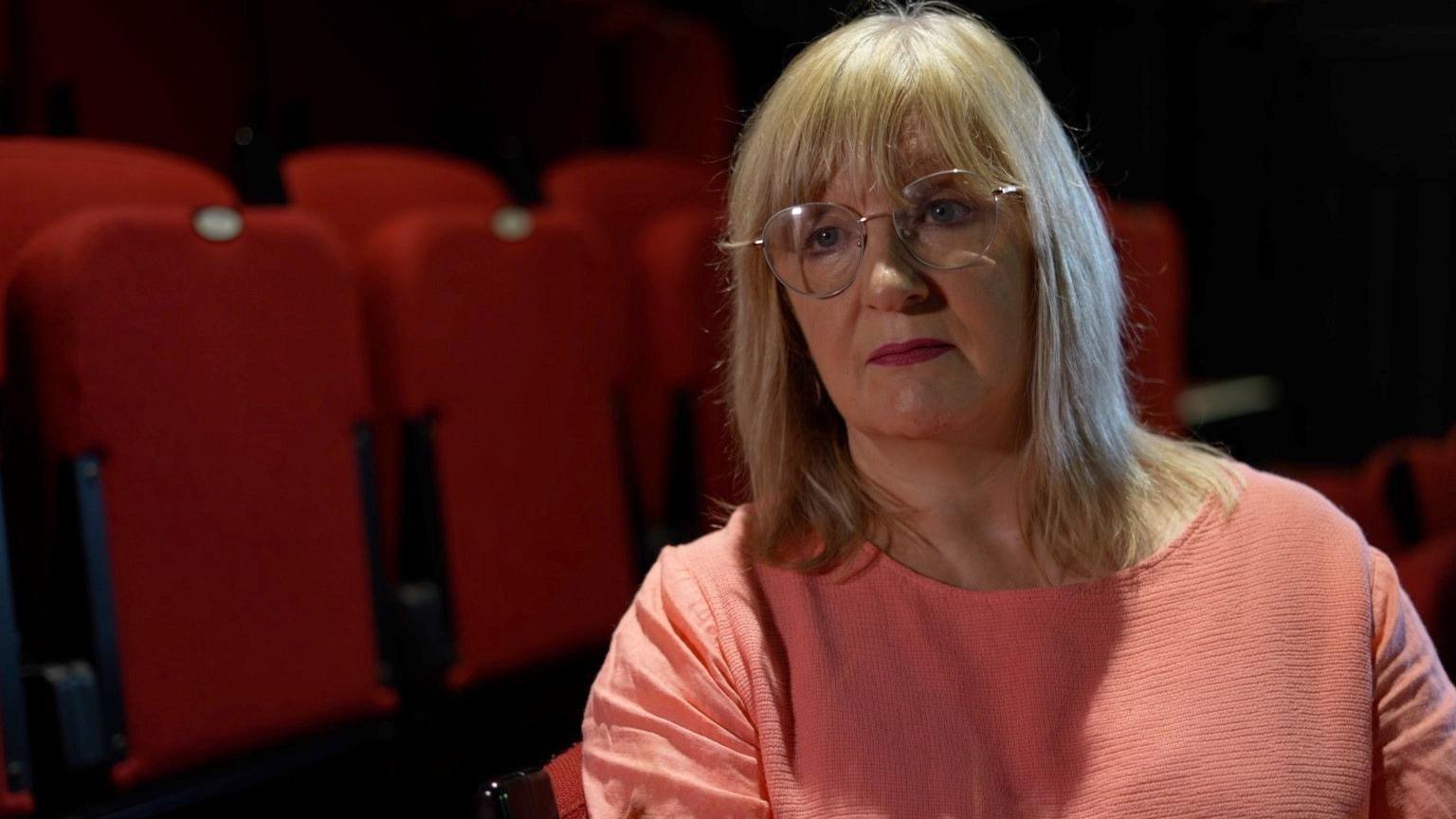
Catriona Cunningham has written the play, The Marian Hotel, which is touring Northern Ireland and is set at Marianvale in Newry
"Mother-and-baby” institutions in Northern Ireland were mainly run by religious orders.
They included three Magdalene Laundries in Belfast, Londonderry and Newry – in effect, workhouses where pregnant women and girls were made to carry out demanding duties.
Survivors of those homes have been using creative expressions of their experiences to try to help encourage more people to seek help and contribute testimonies.
Caitriona Cunningham has written the play, The Marian Hotel, which is touring Northern Ireland and is set at Marianvale in Newry.
The lead character, Kitty, is based on Caitriona herself, who was in the institution from 1979 to 1980.
She described life there as “very regimented” with “everything geared towards having your baby adopted".
Caitriona said she was one of the “few lucky people” because “I got my daughter back when she was three months old".
“But for years, I didn’t tell anybody that I was in Marianvale," she said.
“More recently, it was in my mind all the time. I was thinking about the other women.
“I started to write down wee notes and now this play is what it’s come to. It’s amazing.”
Trauma support
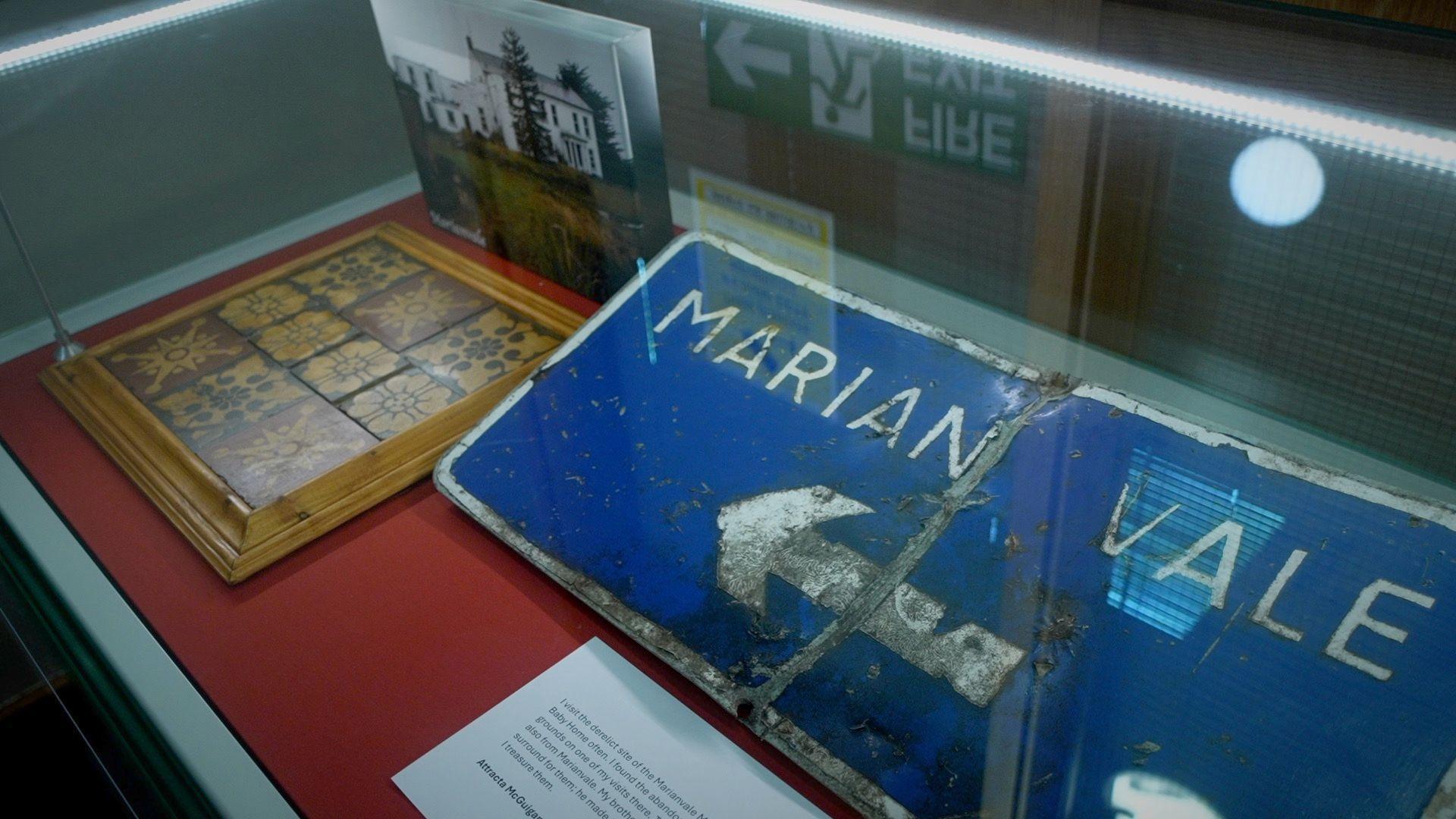
Exhibits on display in The Sunflower Project in the Linenhall Library
Trauma support workers are attending every performance.
The artistic director of Sole Purpose Productions, Patricia Byrne, explained: “They will be there to give help to anyone who will be impacted or might be feeling emotional about what they see.”
She said she hoped bringing stories which had been secret for so long onto a public stage would help to lessen stigma.
“The play is very much a call to people who may have been impacted by mother-and-baby institutions to come forward.”
Survivors have also put together an exhibition of original art and artefacts associated with the institutions in an exhibition, The Sunflower Project, which is currently on display at Linen Hall Library in Belfast.
The exhibits – such as a christening robe, toys, and letters - captures the sense of love, loss and loneliness which they experienced.
The issues are also highlighted in a film which is in cinemas this month.
Cillian Murphy plays a character, Bill Furlong, who is troubled by what he notices happening at the institution.
Prof McCormick is appealing for people who lived close to the institutions in Northern Ireland to contact the Truth Recovery Panel.
“We’re interested in anybody who had any connection with these institutions.
"For example, there are neighbours who might have been aware of laundry going in and out.
“Clergy may have brought people to these institutions.
“There are also magistrates, GPs, social workers, probation workers, midwives in local hospitals, builders who worked at the institutions.
“Anybody with any understanding could help us to piece together these stories.”
She also said the panel was keen to hear from people from the Protestant community – because most women who had come forward were in institutions run by Catholic organisations.
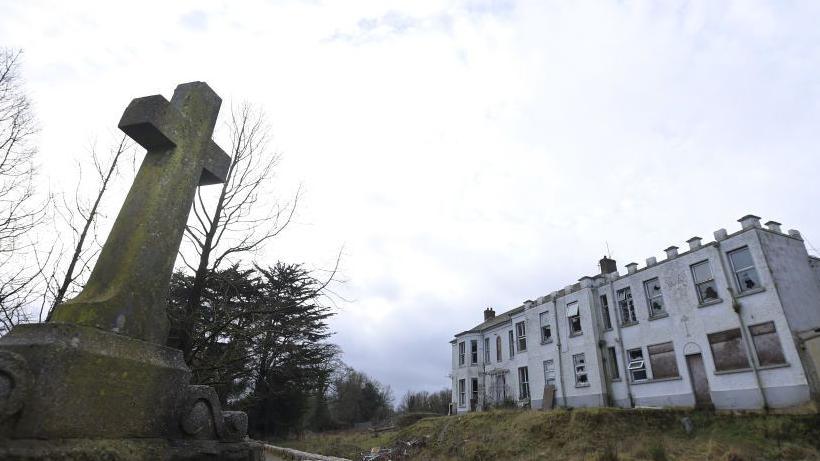
The former Marianvale Mother and Baby home in Newry
What were the mother-and-baby homes?
They were a network of institutions across the island of Ireland which housed unmarried women and their babies at a time when pregnancy outside marriage was viewed as scandalous.
There were more than 12 such mother-and-baby homes in Northern Ireland.
Three of them were Catholic-run workhouses known as Magdalene Laundries, where women frequently had to do exhausting, unpaid labour.
A number were the victims of sexual crime, including rape and incest, and “strenuous physical labour” was expected of residents late into their pregnancies.
Many women and girls were separated from their children by placing them in children's homes, boarding them out (fostering) or through adoption.
There was also the issue of the cross-border movement of women and children in and out of the institutions.
The last institution in Northern Ireland closed in 1990.
Related topics
- Published25 June 2024
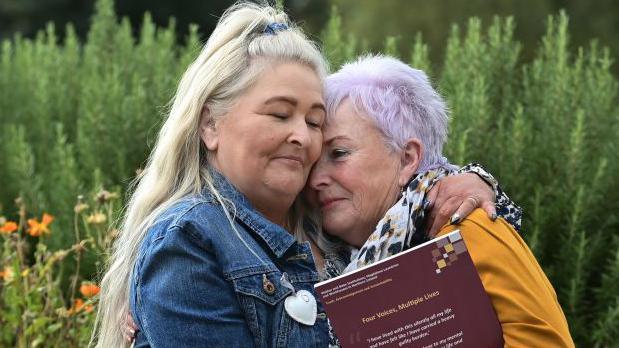
- Published28 June 2024
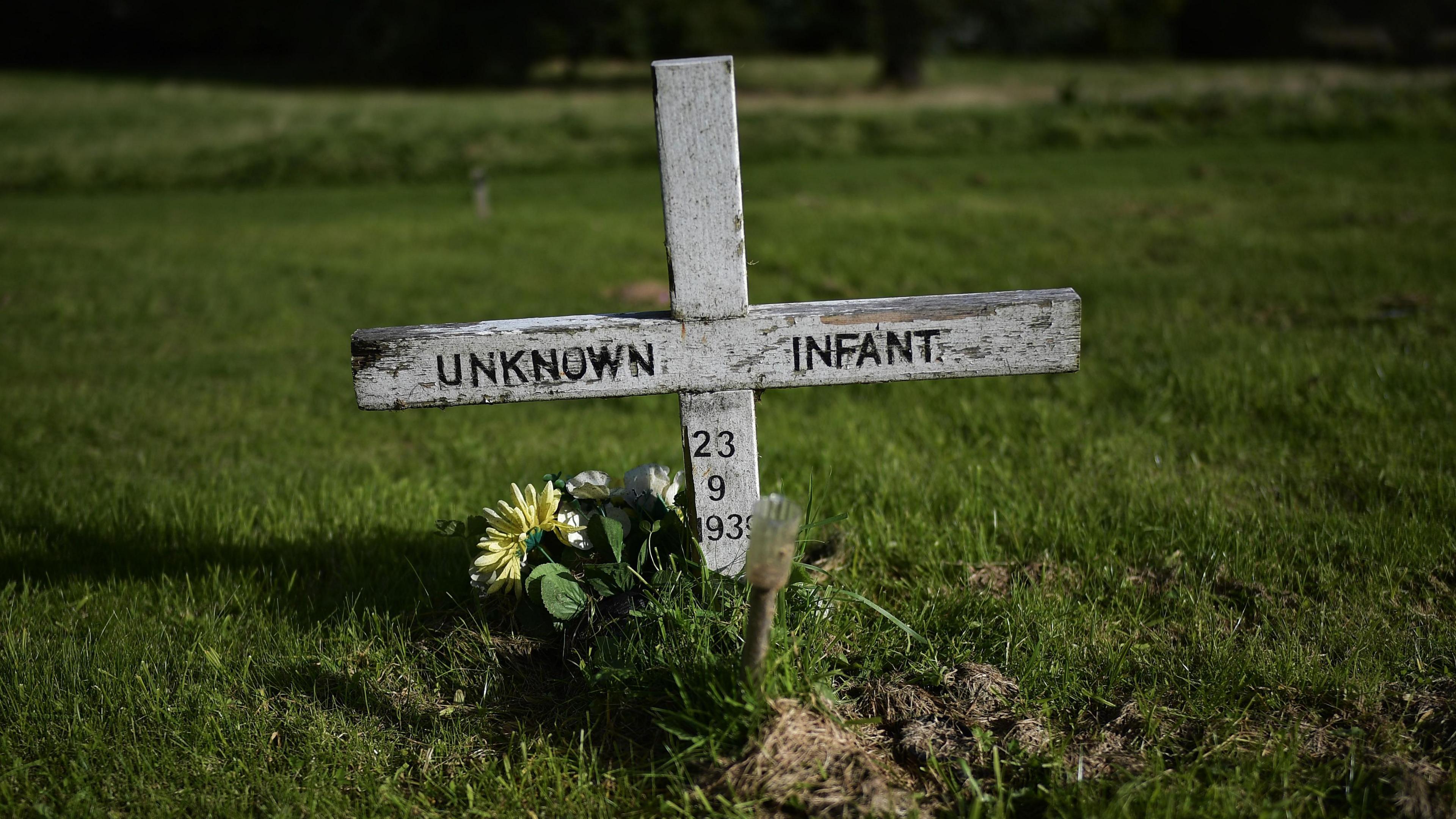
- Published7 October 2023
